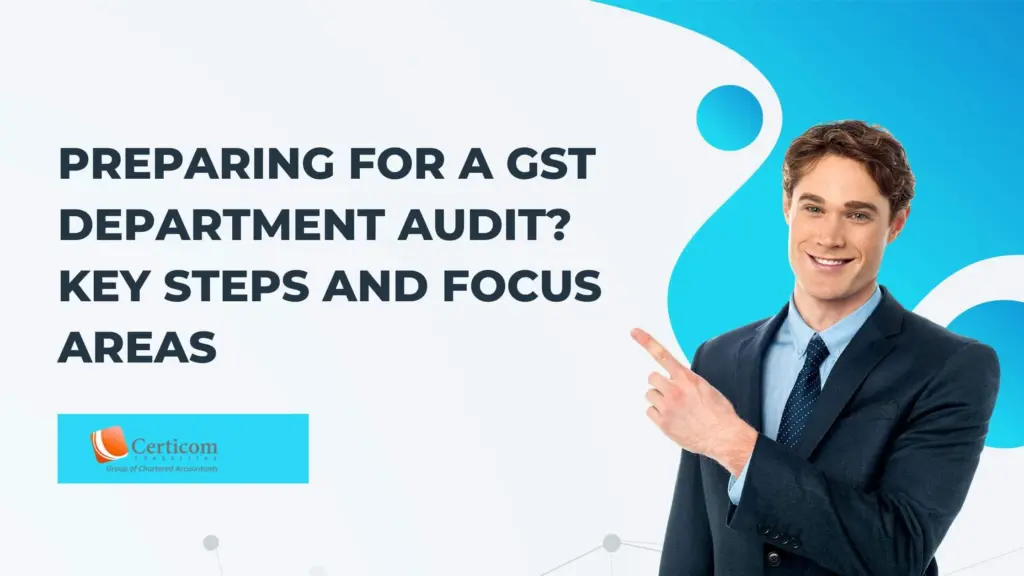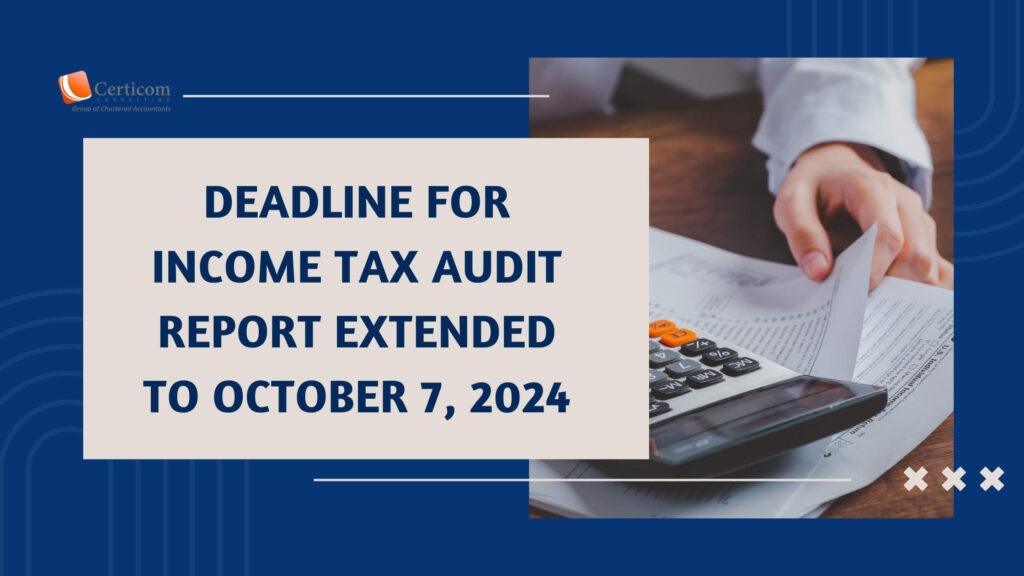Preparing for a GST Department Audit: Key Steps and Focus Areas

Receiving a GST audit notice from the department can be an intimidating experience for any business. However, with timely preparation and a systematic approach, it is possible to handle the audit process efficiently and avoid penalties. This guide outlines the essential steps to take upon receiving a GST audit notice, key reconciliation tasks, common audit focus areas, and best practices to ensure compliance.
1. Understand the Audit Notice
The first and most crucial step is to thoroughly review the audit notice. It typically contains vital information such as the scope of the audit, audit period, the legal provision under which it is initiated (usually Section 65 or 66 of the CGST Act), and the details of the audit officer. Businesses should also take note of any deadlines for document submission or meetings.
2. Verify GST Returns and Conduct Reconciliations
Before the audit begins, businesses must ensure that all GST returns—GSTR-1, GSTR-3B, GSTR-9, and GSTR-9C (if applicable)—are filed and reconciled with their financial records. Key reconciliation areas include:
Sales and purchase ledgers vs. GST returns
Input Tax Credit (ITC) claimed vs. GSTR-2B
Output tax liability vs. sales registers
E-invoice and E-way bill data vs. GSTR-1 and sales registers
Maintaining an accurate stock register and general ledger is also essential, as discrepancies here are common triggers for scrutiny.

3. Organize Required Documents
Proper documentation is critical during a GST audit. Businesses should organize and keep ready the following:
GST registration certificate
All filed GST returns (monthly and annual)
Tax invoices and e-way bills
Purchase and sales registers
Input and output tax ledgers
Stock and expense registers
Trial balance, profit & loss statement, and balance sheet
Bank statements
All reconciliation workings and justifications for past entries
Digital organization of these files by GSTIN, financial year, and document type can significantly ease the audit process.
4. Key Areas of Focus for GST Auditors
Audit officers often focus on common areas of non-compliance. Businesses should proactively verify:
Excess ITC claimed or mismatch with GSTR-2B
Non-payment to suppliers within 180 days and reversal of ITC, if applicable
Undisclosed or under-reported outward supplies
Valuation discrepancies or under-valuation of supplies
Reverse Charge Mechanism (RCM) compliance
Tax liability on advances and time of supply
Transactions with related parties
Apportionment of ITC between taxable, exempt, and non-GST supplies
5. Specific Compliance Checks That Attract Penalties
Even in the absence of major discrepancies, auditors frequently verify smaller compliance points that carry direct penalties. Businesses should review:
Filing of ITC-04 for goods sent to job workers
Declaration of all bank accounts linked to the business in the GST portal (failure to declare can attract a penalty of ₹25,000 per undeclared account)
HSN code reporting: Ensure the top five HSNs are updated and match invoices and returns
GSTR-1 summaries: Ensure document summaries and HSN tables are correctly filed
Updated business addresses: Any change in the principal or additional place of business must be updated within 30 days
E-invoice and e-way bill data: Must match GSTR-1; any mismatch can lead to per-invoice penalties
6. Voluntary Correction and DRC-03
If any past errors or shortfalls are discovered during pre-audit checks, businesses can voluntarily pay the differential tax using Form DRC-03. This proactive step is often viewed positively and may help in mitigating penalties or interest.
7. Representation and Legal Awareness
While a business owner may choose to appear before the officer, it is advisable to nominate a knowledgeable person such as the accounts head or GST consultant for representation. All submissions must be in written form and duly acknowledged by the officer.
It also helps to be familiar with the key legal provisions related to audits:
Section 65 – Departmental Audit
Section 66 – Special Audit by Chartered Accountant or Cost Accountant
Section 70 – Power to summon documents or persons
Rule 101 – Procedure of audit

8. Importance of Professional Assistance
Engaging a Chartered Accountant or GST expert can prove invaluable. They can conduct a pre-audit review, simulate likely questions, and help in preparing reconciliations and documentation. Their support ensures that the business is well-prepared and compliant, significantly reducing audit risks.
Read More: Claiming Delayed Income Tax Refunds: Relief Through CBDT’s Special Provisions
A GST audit is not just a compliance exercise—it is a test of the accuracy, transparency, and discipline of your tax practices. Being proactive, meticulous, and professionally guided can ensure a smooth audit experience and protect your business from unnecessary financial and legal exposure.
Related Post
Have You Reported Your Foreign Assets in Your Income Tax Return?
A Beginner’s Guide to E-Filing Income Tax Return for FY 2024-25
Faking Tax Deductions? You Could Be Penalised Up To 200% Under Income Tax Rules
Book A One To One Consultation Now For FREE
How can we help? *












